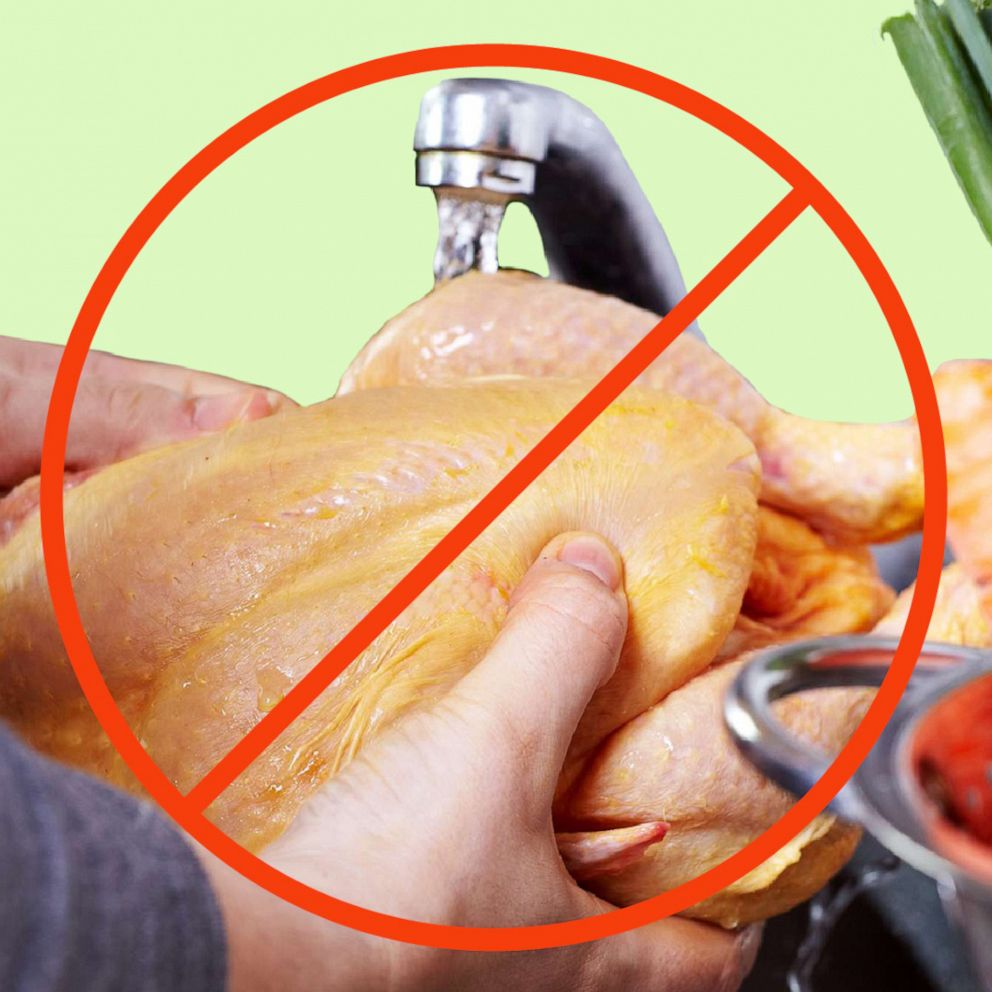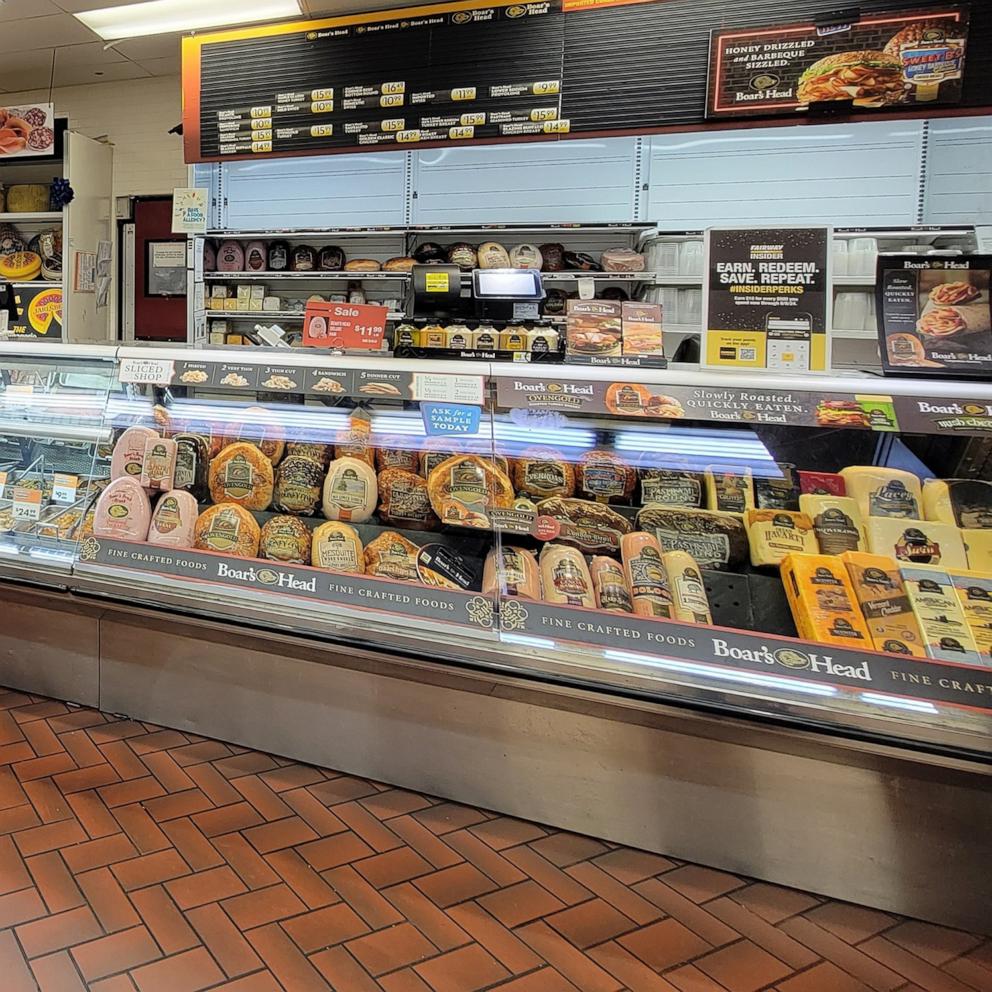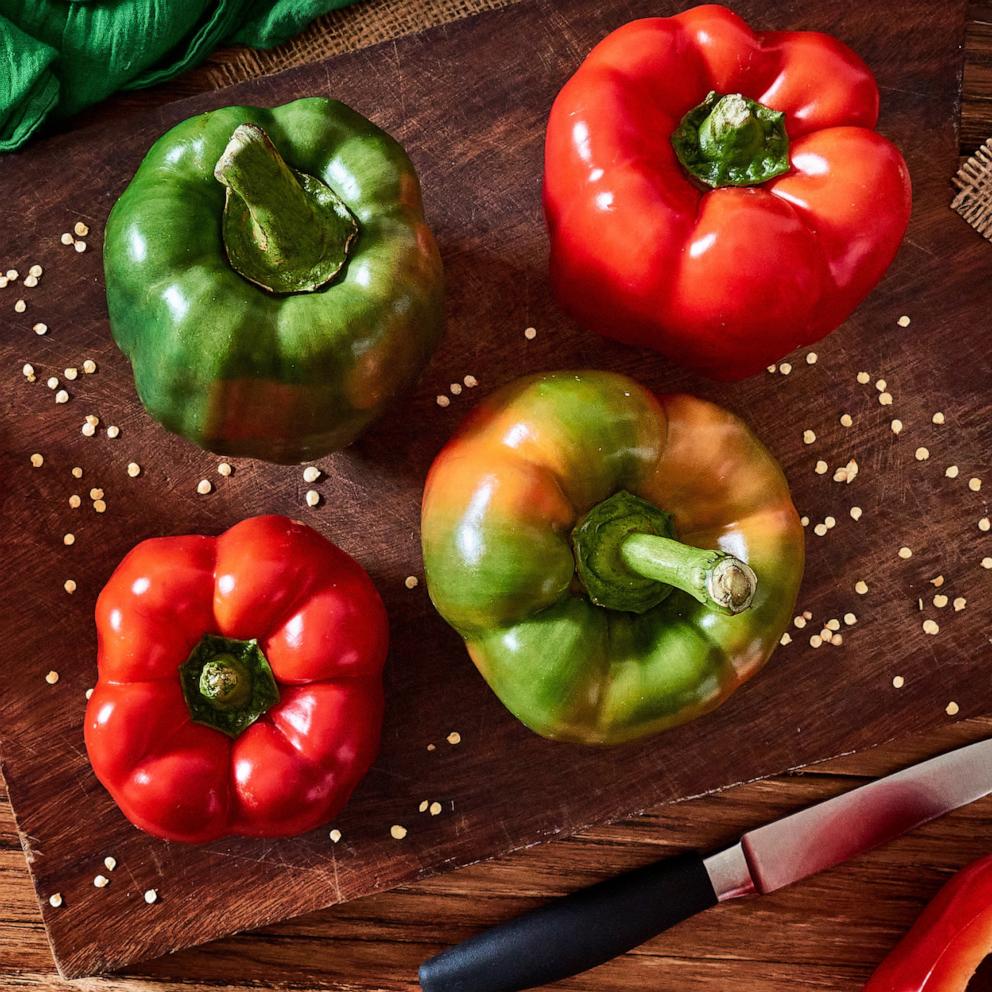Avoid food poisoning this Independence Day with these simple tips from the USDA
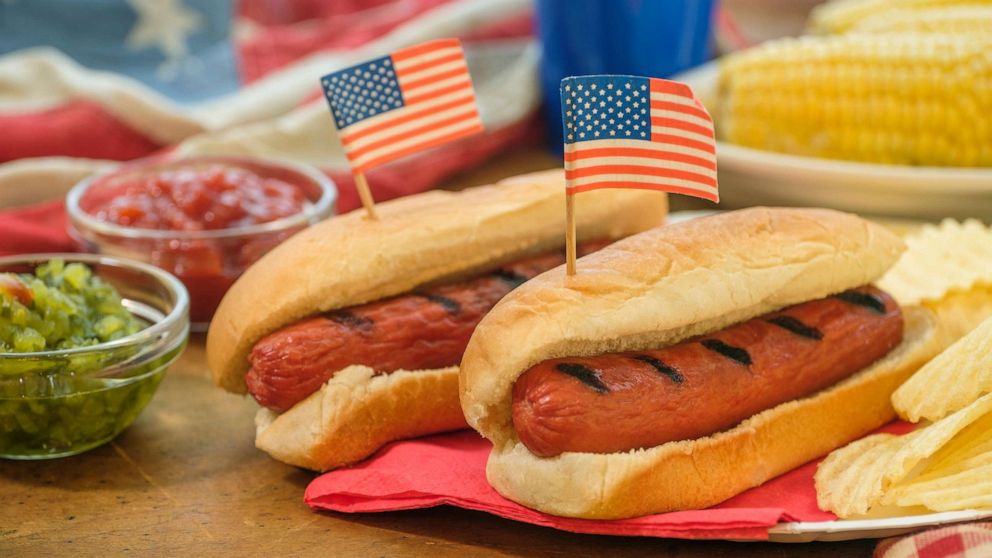
With Independence Day approaching, and plenty of associated picnics and barbecues on the way, the U.S. Department of Agriculture is warning of the dangers of foodborne illness and providing some helpful tips to keep people safe.
Four easy steps can help you avoid food poisoning: clean, separate, cook and chill.
First, find out if there is a clean water source before you grill or eat outdoors. If not, pack water for food preparation and cleaning as well as clean cloths, alcohol-based moist wipes, and hand sanitizer to clean hands and surfaces.
"If you are grilling out at a public park, and [they] have grills and tables there, be sure to check the grill and use a grill brush to scrub off any excess debris. You can also make sure to bring some disinfecting wipes to disinfect any kind of patio furniture, tables, and chairs that you may be using, especially if they're going to be in contact with food," said Kenneth King, a USDA food safety expert.
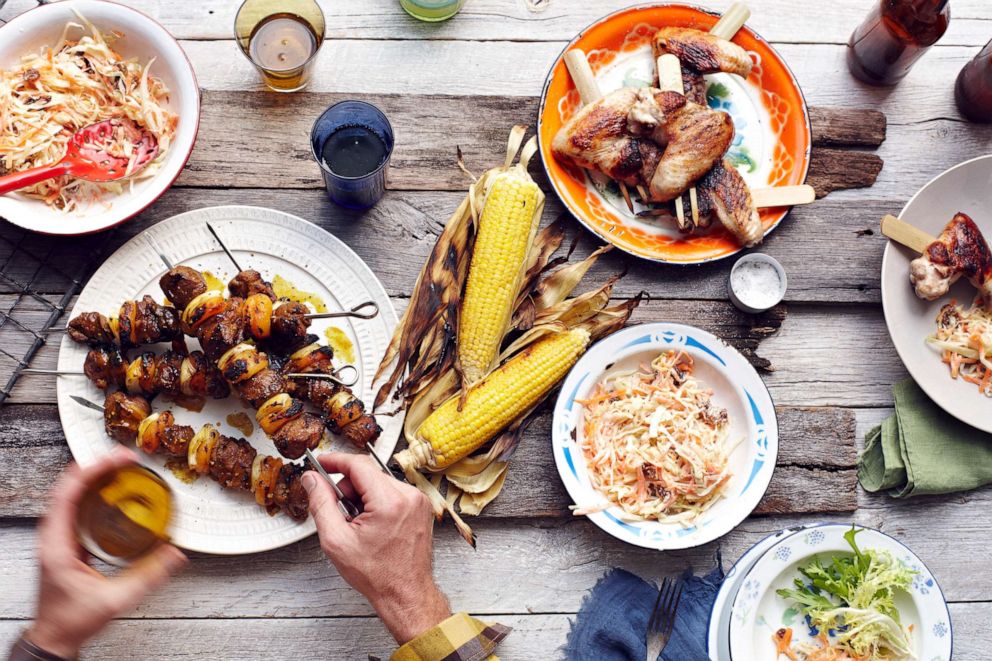
Keep raw meats, poultry, seafood, and eggs separate from any other ready-to-eat foods to avoid cross-contamination. Use a separate cutting board for fresh produce and another one for raw meat products.
Always use a food thermometer to ensure that all foods are cooked to a safe minimum internal temperature.
"For hamburgers, you want to insert the food thermometer through the side of the patty until the probe reaches the center ... the temperature should read 160F [when] your hamburger is safe to eat," King said. "For hot dogs, they need to reach 165F and you can do this by sticking the thermometer into the end of the hot dog all the way until the probe reaches the center."
If you're transporting food in a cooler, make sure it is stocked with ice or frozen gel to keep perishable food cold. The "danger zone" in which bacteria grow rapidly is in between 40 degrees Fahrenheit and 140 degrees Fahrenheit.
Additionally, you should avoid leaving any food out longer than two hours, or one hour if the outside temperature surpasses 90 degrees Fahrenheit. Keep any pack beverages in a separate cooler from perishable food.
"The scary thing about bacteria is that we can't really see it, the food may look okay, but in actuality, it's not," King said. "We always recommend to people [that] when you're out grilling, and you have some food sitting out on the table too long and no one's eating it, please be sure to put that food back into a refrigerator. Or if you're grilling outside, and you have a cooler with some ice, nestle that food under some ice in the cooler to keep it cold."
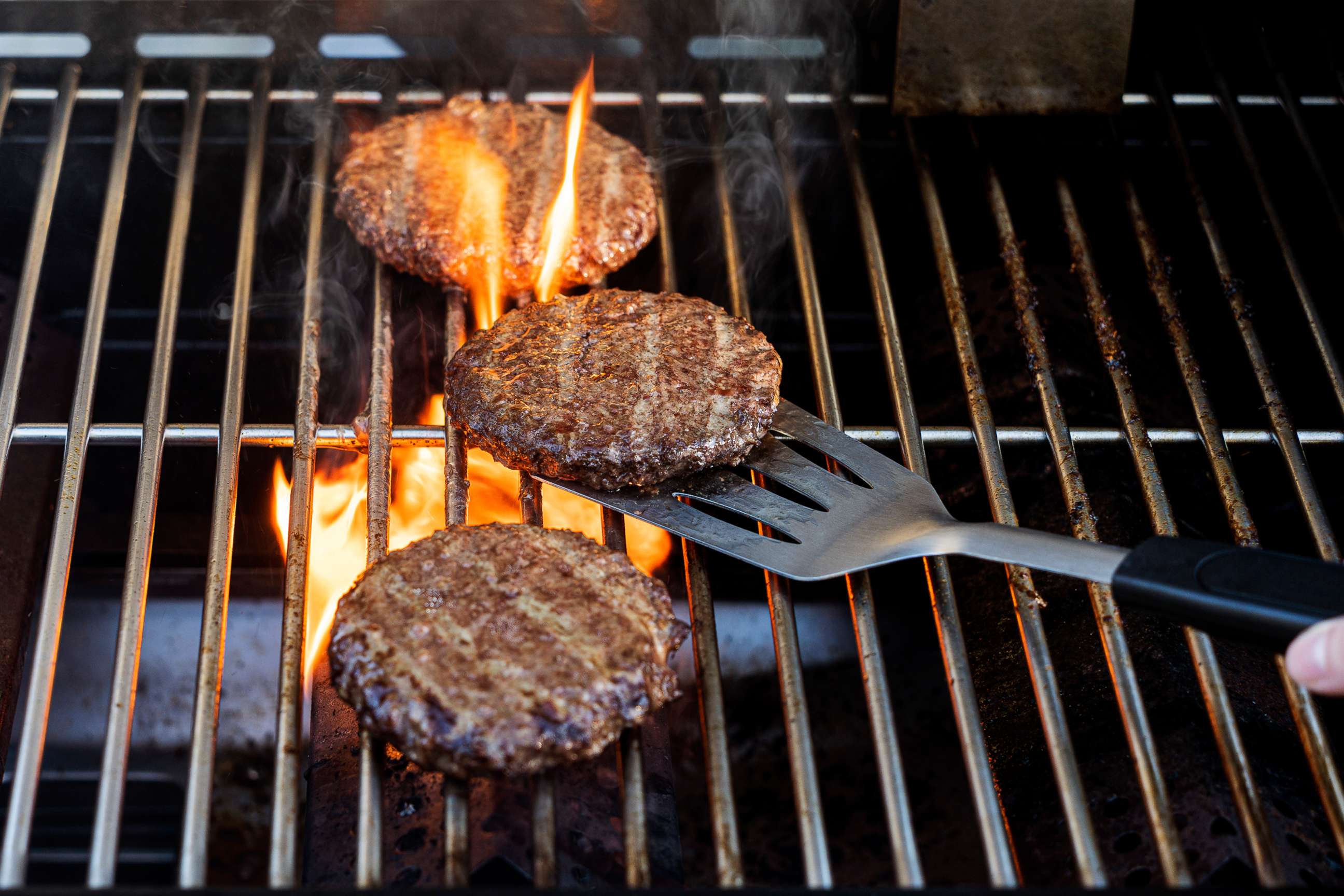
An estimated 48 million people in the U.S. -- 1 in 6 Americans -- get sick from foodborne diseases each year, according to the Centers for Disease Control and Prevention.
Certain groups are at risk of more serious illness from food poisoning. Adults aged 65 and older, children under the age of 5, those with weakened immune system due to health conditions or medicine, and pregnant people should take extra care when eating food.
The CDC also recommends that those at higher risk should avoid undercooked or raw food from animals, raw or lightly cooked sprouts, unpasteurized milk and juices, and soft cheese that has not been made with pasteurized milk.
Symptoms of food poisoning include upset stomach, stomach cramps, nausea, vomiting, diarrhea, and fever. Visit a health care provider if you or a loved one develops severe symptoms such as bloody diarrhea, a high fever, frequent vomiting, signs of dehydration and diarrhea that lasts more than three days.
The USDA Meat and Poultry Hotline can be reached at 1-888-674-6854. You can also chat live at ask.usda.gov. Representatives can help address any food safety questions people might have from 10 a.m. to 6 p.m. ET, Monday through Friday.
"We recommend that while you're preparing for the July 4 weekend, make sure to give us a call if you have any questions. Or you can look up our website at foodsafety.gov," said King.

